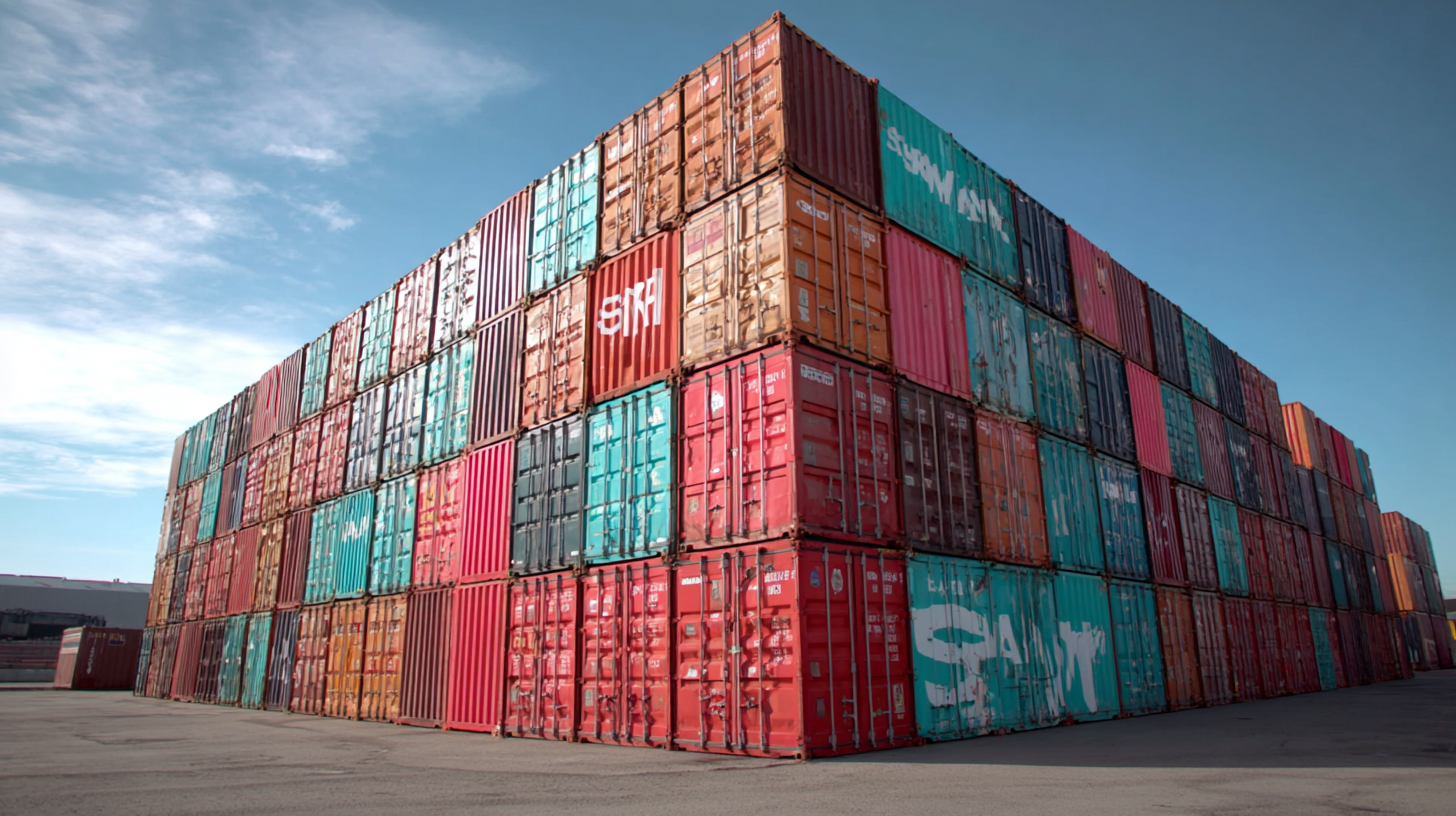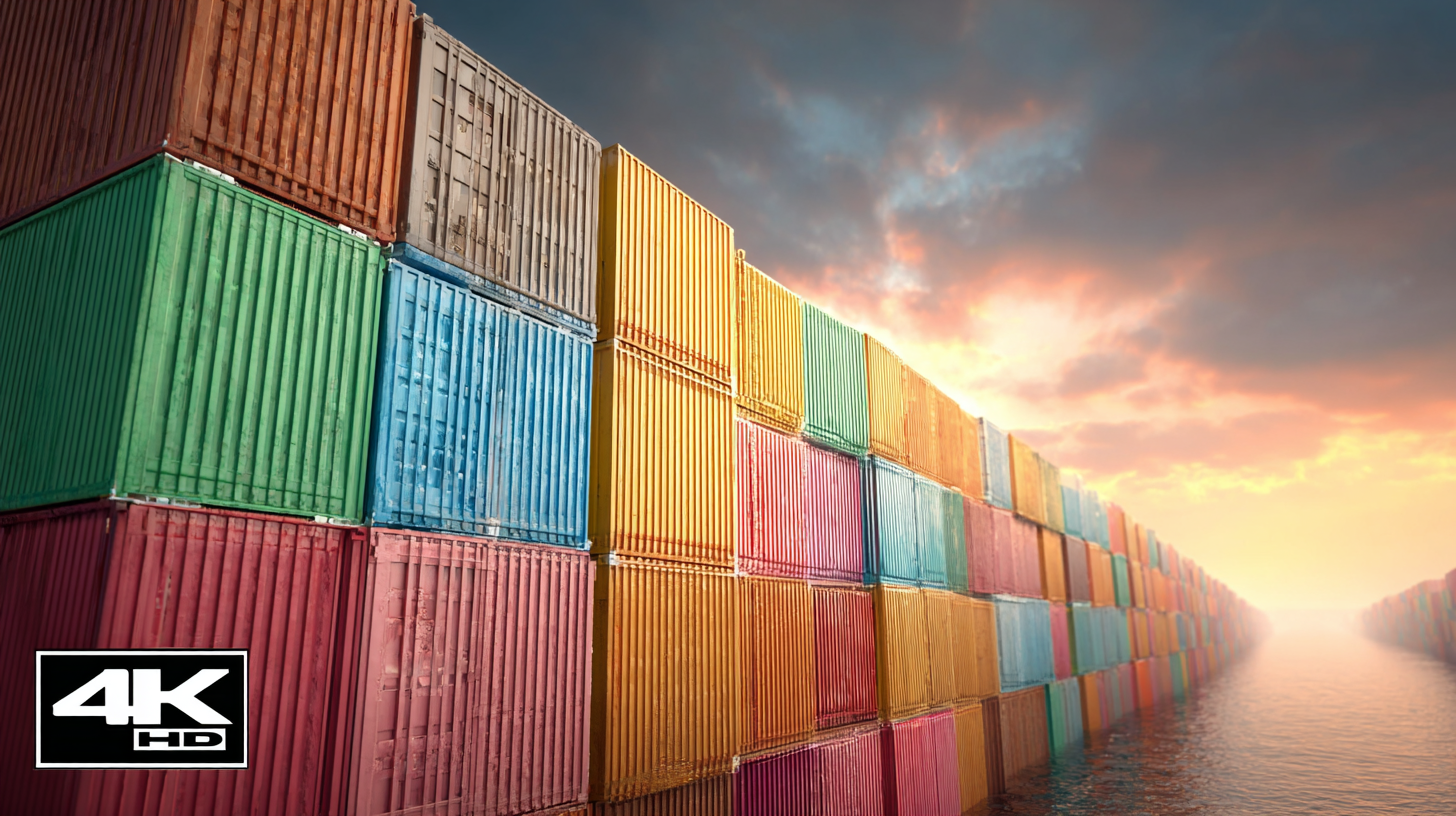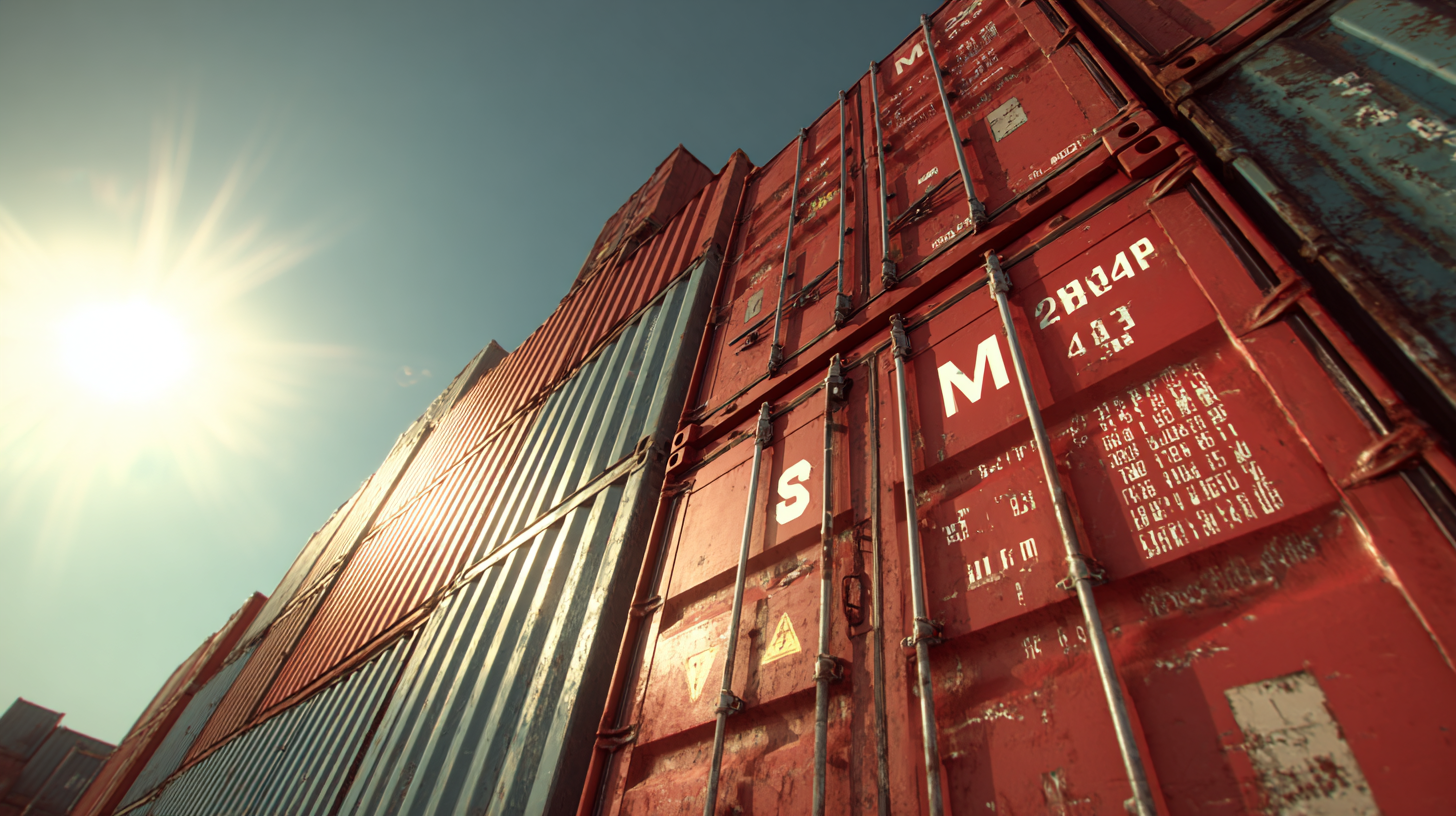In an increasingly interconnected world, the efficiency of global trade hinges significantly on the logistics of transporting goods across vast distances. At the heart of this complex system lies the Large Shipping Container, a crucial innovation that has revolutionized how products are moved internationally. These containers not only maximize cargo capacity but also enhance the speed and safety of shipments, ultimately reducing costs and improving delivery times. As businesses strive to optimize their supply chains in the face of rising consumer demands and fluctuating markets, understanding the role of Large Shipping Containers becomes paramount. In this ultimate guide, we will explore the importance of these containers, the latest advancements in container technology, and strategies for leveraging them to achieve greater efficiency in global trade, paving the way for a more streamlined and productive future.

 The velocity of global trade is increasingly dependent on the efficiency of shipping containers, particularly the larger ones that facilitate faster, more streamlined logistics. As international demand for goods continues to grow, large shipping containers enable the movement of substantial quantities of products in a single voyage. This capability not only reduces shipping costs but also shortens delivery times, which is essential in an era where consumers expect rapid access to goods. The ability to transport more items per container translates directly to optimized supply chains, allowing businesses to respond quickly to market demands.
The velocity of global trade is increasingly dependent on the efficiency of shipping containers, particularly the larger ones that facilitate faster, more streamlined logistics. As international demand for goods continues to grow, large shipping containers enable the movement of substantial quantities of products in a single voyage. This capability not only reduces shipping costs but also shortens delivery times, which is essential in an era where consumers expect rapid access to goods. The ability to transport more items per container translates directly to optimized supply chains, allowing businesses to respond quickly to market demands.
Furthermore, the integration of advanced technologies in large shipping containers is enhancing their impact on trade velocity. Features such as real-time tracking, automated loading and unloading processes, and improved aerodynamics contribute to higher efficiency and reduced operational delays. As shipping companies invest in modern container fleets, they are able to handle increased volumes while maintaining high standards of safety and reliability. Consequently, the future of global trade relies heavily on the evolution of shipping container technology, which plays a crucial role in supporting an increasingly interconnected economy.
In the ever-evolving landscape of global trade, import and export certification challenges have emerged as critical barriers to efficiency in the shipping industry. According to a 2022 report by the International Maritime Organization, logistical delays attributed to certification issues can extend delivery times by an average of 10-15%. This highlights the urgent need for companies to streamline their documentation processes and ensure compliance with ever-changing regulations worldwide.
**Tips for Overcoming Certification Challenges:**
1. Invest in a robust compliance management system to track certification requirements across different markets.
2. Regularly train your team on the latest regulations to minimize human errors and expedite the certification process.
Moreover, large shipping containers, which are essential for transporting goods efficiently, must be accompanied by accurate and timely certifications. A study by the World Trade Organization indicates that 20% of shipping delays can be traced back to discrepancies in documentation. Adopting digital solutions and automation can significantly enhance the accuracy and speed of trade documentation, allowing exporters to navigate certification requirements seamlessly.
**Tips for Enhancing Documentation Efficiency:**
- Utilize cloud-based platforms for real-time updates and access to necessary certifications.
- Collaborate with logistics partners who specialize in navigating the certification landscape to ensure compliance.
| Shipping Container Size (in TEU) | Max Weight Capacity (kg) | Average Cost (USD) | Typical Use Case | Certification Challenges |
|---|---|---|---|---|
| 20' | 30,480 | 2,000 | Intermodal shipping | Lack of standardization |
| 40' | 30,480 | 3,500 | Bulk shipping | Customs documentation delays |
| 40' HC | 30,480 | 4,000 | High-value goods | Inspection protocols |
| 45' | 30,480 | 4,500 | Large machinery | Regulatory compliance |
| Specialized Containers | Varies | 5,000+ | Refrigerated goods | Maintaining temperature records |
The global trade landscape is evolving, and efficient container shipping plays a crucial role in this transformation. According to the World Trade Organization (WTO), global merchandise trade volume increased by 8% in 2021, fueled by robust demand for shipping services. Streamlined container shipping not only enhances the speed of goods movement but also significantly reduces costs. A report by McKinsey states that large shipping containers can lower the cost per ton-mile by 25% when compared to traditional shipping methods, providing a substantial economic advantage for businesses engaged in international trade.
Moreover, optimized port operations are fundamental to enhancing overall supply chain efficiency. The International Maritime Organization (IMO) notes that ports handling larger shipping volumes see a reduction in congestion and turnaround time, leading to improved service delivery. For instance, ports that have implemented advanced container tracking systems have reported a 15% increase in operational efficiency. Furthermore, a study from the Port Authority of New York and New Jersey highlights that modernized port facilities can accommodate the latest generation of mega-container ships, achieving up to 30% lower shipping costs per container. Investing in the best large shipping containers and upgrading port infrastructures will be pivotal in driving down operational costs and boosting economic performance in global trade.
When it comes to optimizing global trade, choosing the right large shipping containers is crucial for enhancing efficiency and minimizing costs. First and foremost, it is essential to assess the type of cargo being transported. Different materials, such as perishables or hazardous goods, may require specialized containers that offer temperature control or additional safety measures. Understanding the specific requirements of your cargo will help streamline the selection process and ensure compliance with international shipping regulations.
In addition to cargo considerations, evaluating the container's construction and design is vital. Opt for containers made from durable materials that can withstand harsh environmental conditions during transit. It's also important to consider the design features, such as ventilation systems and handling equipment compatibility, which can further enhance efficiency during loading and unloading. Consulting with experienced shipping professionals can provide valuable insights into the best practices for selecting containers that align with your operational needs and goals in the ever-evolving global trade landscape.
As global trade continues to evolve, container shipping is at the forefront of innovations aimed at enhancing efficiency and sustainability. Recent discussions at international forums highlight the importance of open collaboration and technological transformation in shaping the future of shipping. The increasing demand for larger and more efficient shipping containers is essential to manage the complexities of global logistics, allowing for reduced emissions and improved capacity utilization.
Emerging trends in container shipping focus on sustainability and digital advancements. The transition to smart ports and digital supply chain solutions is accelerating, driven by innovative technologies such as artificial intelligence for route optimization and real-time tracking. These developments not only enhance operational efficiency but also contribute significantly to environmental sustainability, as companies strive to meet eco-friendly standards imposed by international regulations. This approach reflects a broader commitment to rethinking logistics through a lens of sustainability, ensuring that the shipping industry can adapt to future challenges effectively.

Rob was always very honest and upfront about everything and took the time to explain everything I needed.
“highly recommended. They provided us with a great storage container with ontime services.”
“Bought a used container, its perfect, no leaks and in good condition.”
“Good service and prompt delivery. A great option for temporary storage at a decent price.”
Join our mailing list to get the latest storage container inventory and offers